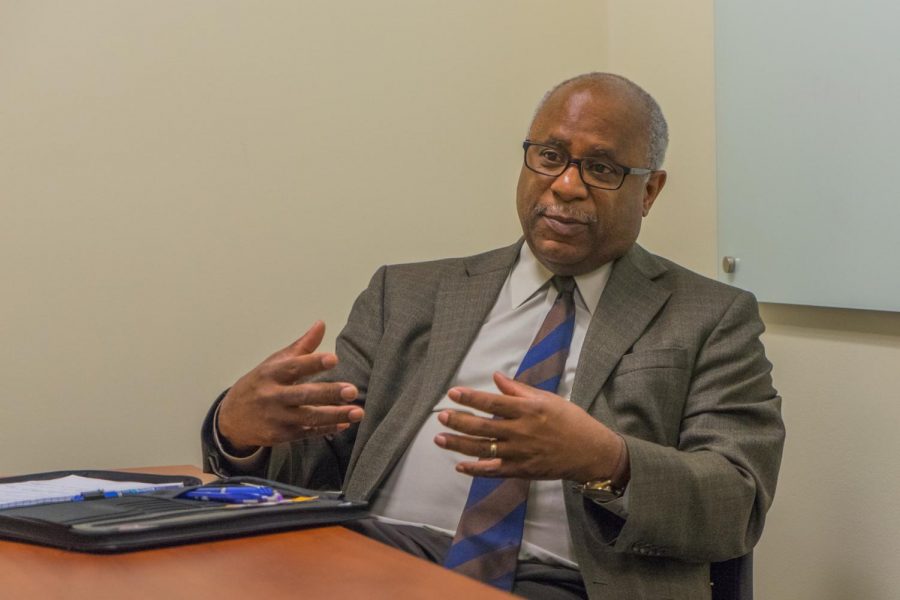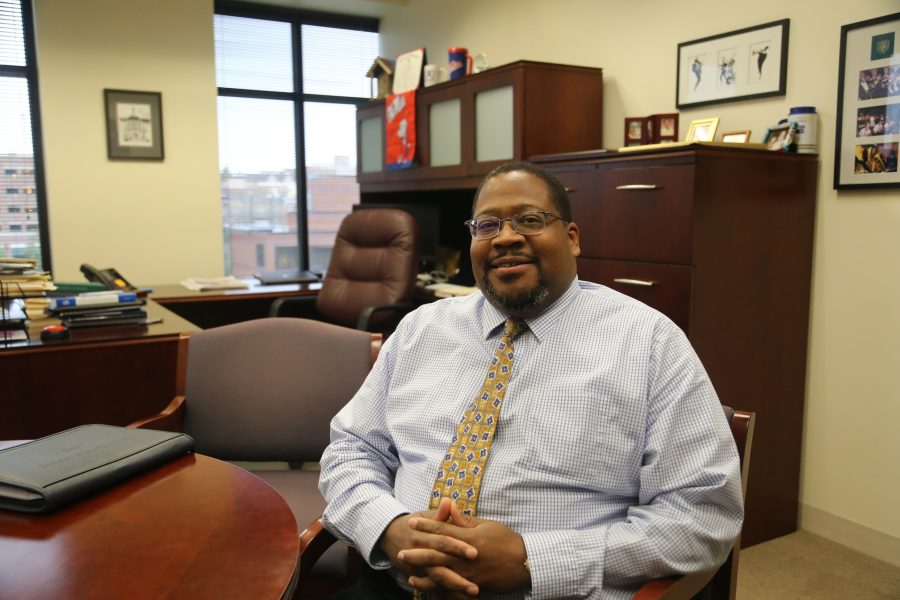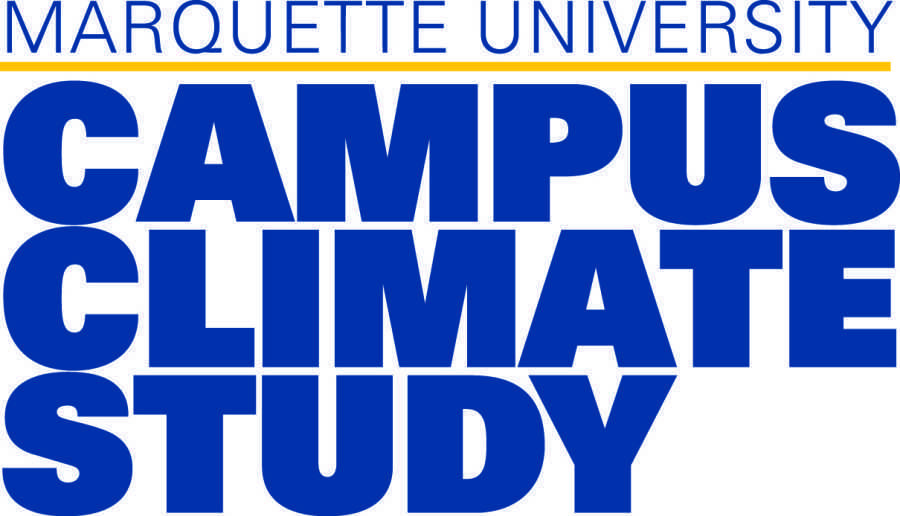Marquette professors across disciplines have been implementing creative teaching strategies and shifting course materials to most effectively teach during this period of mixed course modalities.
Although Marquette has been offering online courses for over a decade, the pandemic has accelerated the implementation of different online technologies and opportunities.
For the spring 2021 semester, there are 1,176 students who are enrolled fully online. Moving forward, the goal is to be fully in-person by fall 2021, María Parés-Toral, director of online pedagogy and e-learning production, said. While there may still be undergraduate courses in the strategic communication degree offered online, as the degree is fully online normally, the plan is to return to pre-pandemic modalities.
Several professors who will be returning to teach in person shared a sentiment of excitement about it.
“I thoroughly want that to happen,” Anthony Bowman, research assistant professor of mechanical engineering, said. “As professors, we like the engagement of students, teaching and doing research. And I think the students feel the same way.”
A fully online course takes about five to six months for professors to plan, Parés-Toral said. Faculty have therefore developed skills with technology and the different learning modalities that were new for many.
“It is important to take advantage of what we have learned and experienced to continue growing and providing multiple pathways to reach educational goals,” Parés-Toral said.
Jennifer Fenton, who teaches remotely as an adjunct in the public service graduate program, said that, with what happened last March, she learned that a lot of faculty were “not using online infrastructures to support their courses and course management.”
“There is a lot of lack of literacy here, especially among senior faculty, and some are unfortunately very skeptical of the value of online learning management systems to support student learning,” Fenton said.
Fenton distributed an accessibility survey to her students when the shutdown happened, which allowed for her to adapt courses accordingly.
“We need to build space into our courses to listen to students, and to take their concerns and their perceptions of their learning needs seriously,” Fenton, who will continue to teach online courses next semester, said.
Bowman said that his homework policies have changed due to COVID-19 and the changes in course modality.
“We’ve tried to reduce the amount of homework, but increase the quality,” Bowman said.
For next semester, Bowman cites online exams as something he wants to get rid of.
“They’re not a great assessment tool,” Bowman said.
In response to feedback from the recent survey on university climate, which gauges how Marquette community members feel about different aspects of the culture and resources at the university, Marquette formed the Electronic Technology Accessibility Committee to ensure electronic information and technology is accessible to “all members of the Marquette community and beyond.”
Part of that effort was the campus-wide implementation of Microsoft Teams, which was accelerated at the onset of the pandemic, Parés-Toral said. Alongside the rollout were facilitated training and online resources for faculty and students.
Back in the spring of 2020, Bowman tried different recording software to give students as much of an immersive experience as possible. One of these was Panopto, where students could switch between different video streams in order to see different parts as they were explained.
Michael Danduran, clinical associate professor of exercise science, implemented a variety of creative strategies to help engage students throughout their online classes. In his exercise testing prescription course last spring, he took efforts to split lectures up into smaller chunks. These lectures could be watched at any time by the students, which Danduran also found helpful.
Within these lectures, Danduran incorporated what he called “Easter eggs,” offering extra credit to students who found them.
“It kind of guaranteed me that if nothing else, I had people watching the lectures or listening to them because I’d hide them at any point in time during the lecture,” Danduran said.
A major new element of Danduran’s teaching this year has been roundtable group discussions. Similarly to breakout groups, he will have students sit in a socially-distanced area during the in-person lab sections of his class and work through a clinical case or a problem.
He anticipates that this new element will remain a feature of his classes going into the future.
“Those are things that I’m definitely going to keep in the lab situations, and even in the classroom settings,” Danduran said.
Danduran and Bowman both plan on continuing to record their lectures even when their classes go back to an in-person modality.
“As long as they’ll support Teams and keep the files stored, I’ll continue to do that,” Bowman said.
However, Danduran wonders if this might result in the loss of students who will no longer come to class if they know they can watch the lecture at a separate time.
Danduran has noticed that, while his in-person labs had good attendance, the hybrid lectures had lower attendance than lectures normally would.
Mickey Mattox, professor of theology, said he has been in-person all year, and has felt safe doing so. He anticipates a broader return to normalcy next semester.
“There’s been a lot of measures taken nationally, internationally and certainly at Marquette. I have no quarrel with what’s been done, but given the protocols that were in place, I never felt uncomfortable going to the classroom,” Mattox said.
Mattox also said that, for many of the undergraduate students in his THEO 3230 class, this was their only in-person class.
“I know that I heard from many of them that it was a relief to have something that seemed at least semi-normal,” Mattox said.
In terms of attendance, Mattox has emphsized the importance of focusing on everybody doing the best that they can. Zoom meetings allow quarantining students to not miss material, and Mattox is making an effort to check up on students outside of class.
“I did this because I know the way things have been were loneliness-inducing. Everyone was prone to loneliness and maybe feelings of despair,” Mattox said. “So it was really great, to catch up with folks and hear how people are doing and get to know them a little bit better.”
Bowman has worked to make in-person options available to students whenever possible. He has implemented an “ABC” rotation for his course that meets Monday, Wednesday and Friday, for students to alternate coming in person.
“There’s usually 8 extra seats,” Bowman said about his in-person sections. “I allow people to sign up and attend on the days that they’re normally scheduled to be online, and I have a full room every day. People want to attend.”
This story was written by Grace Dawson. She can be reached at [email protected].






